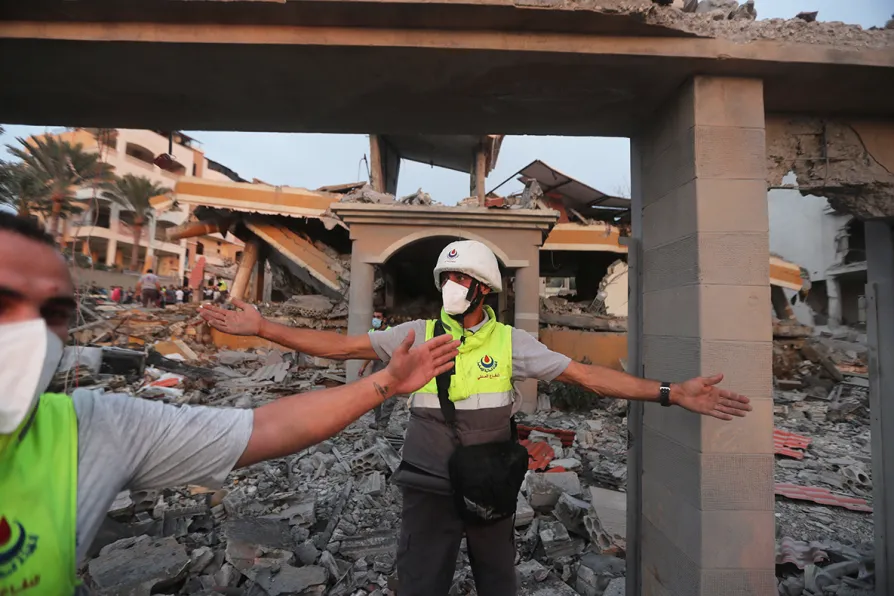
 Civil defense members cordon off the area around a building destroyed by an Israeli air strike in the village of Teir Debba, southern Lebanon, November 6, 2025
Civil defense members cordon off the area around a building destroyed by an Israeli air strike in the village of Teir Debba, southern Lebanon, November 6, 2025
ISRAELI jets attacked three towns in southern Lebanon today after warning residents to leave, marking an escalation in their near-daily strikes on the country.
The attacks came hours after Hezbollah urged the Lebanese government not to enter negotiations with Israel.
Israeli spokesperson Avichay Adraee warned residents in Tayba near the border, Tayr Debba located just east of the coastal city of Tyre, and Aita al-Jabal, to flee from residential buildings they are targeting.
The Israelis claim, without evidence, that the buildings are being used by Hezbollah. They also accuse the group of rebuilding its capabilities almost a year after a US-brokered ceasefire went into effect but which the Israelis have largely ignored.
Lebanese President Joseph Aoun has been critical of Israel’s strikes and military presence on five hill-top points on Lebanese territory but has said he is open to negotiations with Israel to end the tensions.
Israel says its near-daily strikes have targeted Hezbollah officials and military infrastructure, while the Lebanese government that has backed disarming Hezbollah says the strikes have targeted civilians and infrastructure unrelated to the Iran-backed group.
Hezbollah has yet to disarm but its leader Sheikh Naim Kassim has said that the group will be ready to fight no matter how limited their capabilities might be.
Meanwhile, in Gaza, the enclave’s Media Office says only 4,453 trucks have entered the Strip since the ceasefire began in October.
Gaza is only receiving an average of 171 trucks a day, less than one third of the 600 agreed under the ceasefire agreement.
The Gaza Media Office accused the Israelis of blocking more than 350 essential food items from entering.
As the humanitarian crisis deepens in Gaza, the head of the World Health Organisation, Dr Tedros Adhanom Ghebreyesus, says it will rebuild or renovate 20 destroyed or damaged health facilities across Gaza attacked during Israel’s invasion.
Dr Ghebreyesus said the effort to improve the health facilities, which were destroyed by the Israelis, will be carried out in partnership with the UN children’s agency Unicef and the agency for Palestinian refugees, UNRWA.
In the occupied West Bank more than 900 Israelis have entered the al-Aqsa Mosque compound under the protection of Israeli forces.
The site is overseen by the Jordanian-controlled Islamic Waqf, which maintains religious and administrative authority, while Israel controls security around its perimeter.
Under this arrangement, non-Muslims are permitted to visit the site during designated hours but are prohibited from praying there, while Muslims retain full access for worship.










